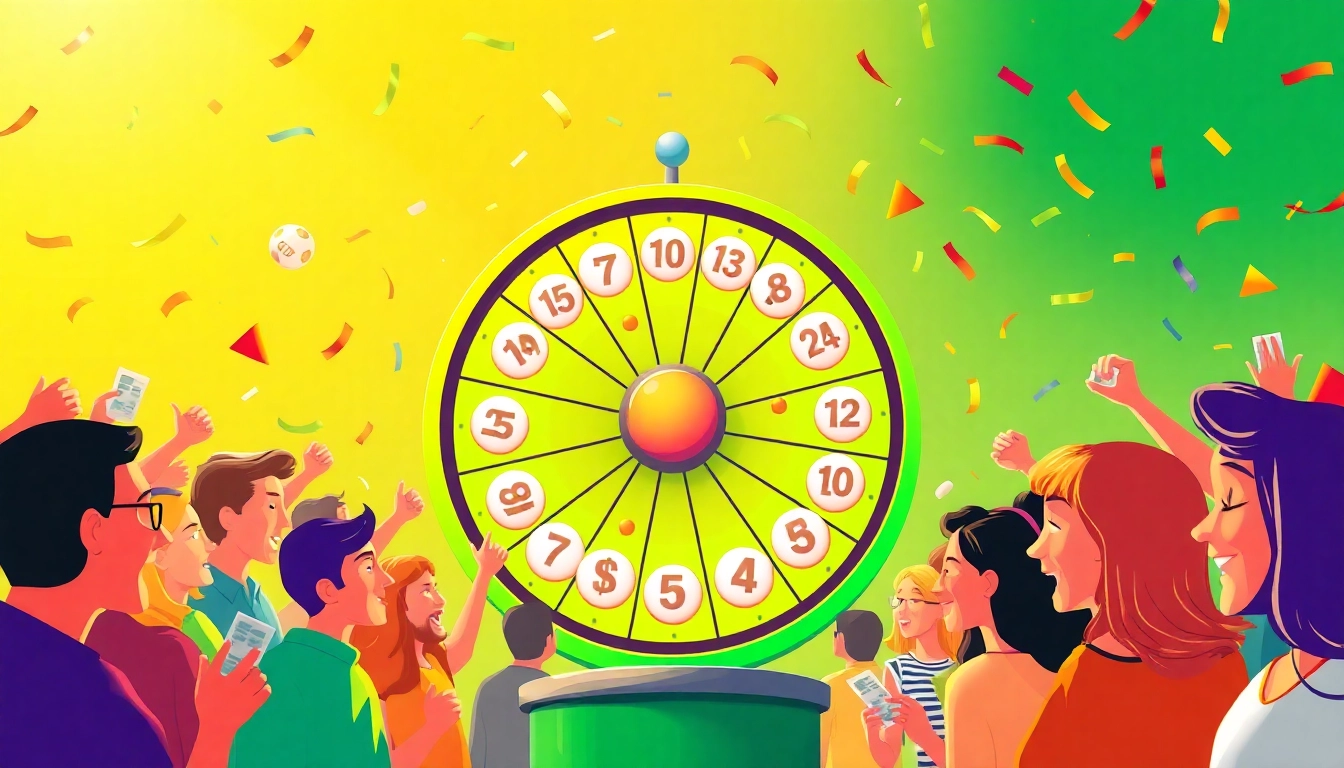Understanding the Lottery: Basics You Need to Know
What is the Lottery?
The lottery is a form of gambling that involves the drawing of numbers for a prize. Lotteries are often organized by governments, where the proceeds are typically used for various public purposes, including education, infrastructure, and social programs. The allure of the lottery lies in the potential for life-changing wins with minimal investment—often just a couple of dollars for a ticket. For those eager to test their luck, participating in a lottery can be an exciting experience.
How Lottery Games Work
Lottery games generally operate through a number of different formats, the most common being digit-based games and draw games. Players select a series of numbers, and if those numbers match the ones drawn by the lottery operator, they win prizes based on the rules of that specific lottery. Different regions have different laws governing lotteries, which influences everything from ticket pricing to prize handing.
Types of Lottery Games Available
There are several types of lottery games available today, including:
- Draw Games: These are traditional lottery games where players pick numbers. Popular examples include Powerball and Mega Millions.
- Instant Games: Often known as scratch-offs, these games provide instant gratification as players can find out immediately if they’ve won a prize by scratching off a ticket.
- Pick Games: In these games, players select a certain number of digits—usually between 1 and 10. The prize levels vary based on how many numbers they match with the official lottery draw.
- Pull Tab Games: These are similar to scratch-off games but are presented as tabs that players pull to reveal symbols. Matching symbols can lead to winnings.
The Lottery Odds: How to Maximize Your Chances
Understanding Odds in Lottery Draws
Understanding the odds of winning in the lottery is essential for players. Each lottery game has a different set of odds depending on the number of balls, how many are drawn, and the total number listed. For instance, the odds of winning a large jackpot in Powerball are a staggering 1 in 292 million—highlighting the fact that without a strategic approach, winning can largely be a matter of chance.
Lottery Strategies: Picking the Right Numbers
While the lottery is largely a game of luck, there are strategies players can use to improve their chances of winning. Some strategies include:
- Hot and Cold Numbers: Some players track which numbers are drawn more frequently (hot) and which haven’t appeared in a while (cold). Choosing a mix can potentially lead to better odds.
- Pooling Resources: Participating in a lottery pool with friends or coworkers can increase buying power, allowing larger bets with better numbers. However, be cautious and ensure clear agreements on how winnings are shared.
- Playing Less Popular Games: Smaller lotteries often have better odds than the massive games like Mega Millions or Powerball. While the jackpots are smaller, winners have better chances.
Popular Lottery Myths Debunked
There are numerous myths and misconceptions about lottery playing that can mislead players into making poor choices:
- Myth #1: “Someone has to win eventually.” Reality: Each draw is an independent event, and past results do not affect future outcomes.
- Myth #2: “Using quick picks reduces your odds.” Reality: Quick picks have the same statistical chance of winning as numbers selected by individuals.
- Myth #3: “You’re more likely to get struck by lightning than win the lottery.” While true in a sense, players often overlook that lotteries provide entertainment and a small chance of winning.
Buying Lottery Tickets: What You Should Consider
Where to Buy Lottery Tickets Safely
Purchasing lottery tickets can be done at various authorized retailers, gas stations, or online, depending on regional laws. It’s crucial to ensure that you are buying tickets from legitimate sources to avoid scams.
Online vs. Retail: Pros and Cons of Buying
When it comes to buying lottery tickets, players have options. Online purchasing offers convenience and sometimes access to exclusive games or promotions. However, buying from a retail outlet allows for a physical interaction and the immediate gratification of holding your ticket. Here are some pros and cons:
- Online: Convenient, no need to leave home, usually provides reminders for draws, and some platforms offer extra bonuses or cash back.
- Retail: Immediate receipt of the ticket, potential social interaction, and support local businesses, but requires physically traveling to the store.
Setting a Budget for Lottery Spending
Just like any form of gambling, it’s essential to set a budget for purchasing lottery tickets. Determine how much you’re willing to spend each month without it affecting your essential expenses. Remember, the lottery is primarily a form of entertainment, not a viable way to make money.
Winning the Lottery: Next Steps to Take
What to Do After Winning a Lottery Prize
Winning a lottery prize can be thrilling, but it’s essential to stay calm and think strategically. Here are the steps you should take immediately after winning:
- Secure Your Ticket: Sign the back of your ticket and store it in a safe place.
- Stay Quiet: Limit how much you share about your winnings to avoid attracting attention.
- Consider Professional Help: Engage a financial advisor or lawyer to help manage your new wealth.
Claiming Your Lottery Winnings: A Step-by-Step Guide
Claiming winnings depends on the amount won and local regulations. In the U.S., for winnings under a certain threshold, you may be able to claim them directly at the retailer. For larger amounts, you’ll likely need to visit a lottery office and provide identification along with your winning ticket. Always verify the claiming process on your local lottery’s website.
Tax Implications of Lottery Winnings in 2023
Lottery winnings are classified as income by the IRS and are subject to federal taxation. Winners can expect a chunk of their winnings to be withheld immediately. State taxes can also apply, and the rates vary depending on where you live. It’s crucial to plan for these potential tax obligations as you consider how you would like to use or invest your winnings.
Responsible Gambling with the Lottery
Understanding Problem Gambling and Lottery
While playing the lottery can be entertaining, it is essential to keep your gambling habits in check. It’s important to recognize the signs of problem gambling, which may include the inability to stop playing, lying about gambling activity, or playing to chase losses. Education and awareness play a critical role in ensuring a balanced approach to gambling.
Resources for Responsible Play
Many organizations and websites provide valuable resources for responsible gambling. These resources can help players understand their habits and provide strategies to maintain control, including:
- Support hotlines
- Online assessment tools
- Self-exclusion programs offered by state lotteries
How to Avoid Lottery Scams
Unfortunately, the excitement of winning can attract scam artists. Here are some tips to avoid lottery scams:
- Be Skeptical: If someone contacts you claiming you won a lottery you didn’t enter, it’s likely a scam.
- Avoid Upfront Fees: Legitimate lotteries will never ask you to pay fees upfront to claim winnings.
- Verify: Always verify winnings through official lottery websites or contact, and avoid sharing personal information with anyone claiming to be a lottery representative.



